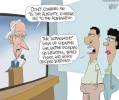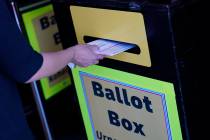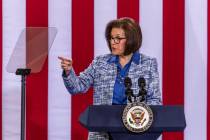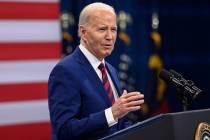Balance will be hard to find in CCSD’s new employee/student relationship regulations
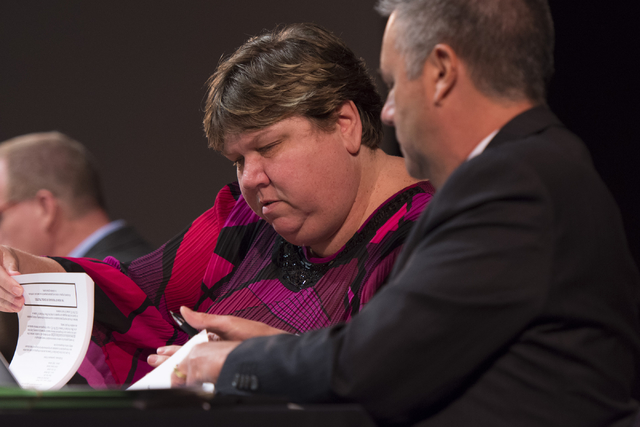
It was a perfect bureaucrat show, which was why so few people showed up.
I’d put attendance at 120 for Thursday’s Clark County School District meeting on its draft employee relationship/social media policy and regulations. Late-arriving parents eventually outnumbered media members, but government employees outnumbered both by my estimation.
The turnout shouldn’t be surprising since a 10-member panel answering scripted questions makes legislative hearings seem like a Cirque du Soleil show in comparison.
That’s the case even though the Las Vegas Review-Journal’s Broken Trust series has made clear that sexual abuse by CCSD employees is a crisis. Broken Trust identified systemic problems in the district, including “passing the trash.” That’s where sexual predators move from school to school, since the Clark County Education Association makes it so difficult it is to remove dangerous teachers. The reporting by Amelia Pak-Harvey and Meghin Delaney has already helped ensure the passage of two bills closing background check loopholes.
CCSD’s draft policy and regulations governing employee/student relationships and interactions on social media looks to fix another area Broken Trust identified — a lack of clear guidelines governing its social media policy and interactions with students.
Surprisingly, many of the prepared presentations didn’t discuss the regulations directly. When questioned by a parent, Superintendent Pat Skorkowsky didn’t even have a copy in front of him, although staff did collect written comments for further consideration.
The district’s challenge is that its best employees on one hand and sexual predators on the other take an interest in students that goes beyond their contractual obligations — for completely different reasons. Consider this proposed policy.
“CCSD employees and representatives must ensure that all relationships, interactions, and communications with students are … restricted to education-related matters.”
The regulation goes further. Approach a teacher or coach with a personal matter and if the employee feels the student needs assistance, they “must redirect the student to a school administrator or counselor.”
It’s there to prevent bad situations, but consider the trade-offs. Say goodbye to teachers as mentors. So long to football coaches teaching boys to be men.
As the policy moves through the drafting process, that wording should continue to be refined.
“You can have a relationship with your students that is a professional relationship, that is special in ways, but is not inappropriate,” said Board Chair Deanna Wright. “That’s where we have to continue to reassure our teachers, because it is about those relationships.”
That’s a tough balance to put on paper. But the regulations were silent on the biggest challenge facing the school district.
“It (the proposed policy) does not address what happens if there’s an incident,” said Donald Baum, a parent of two district students, during audience comments.
If CCEA continues to insist on protecting all teachers where the evidence of sexual misconduct can’t be proven beyond a reasonable doubt, don’t expect much to change. CCEA President Vikki Courtney was scheduled to appear on the panel, but didn’t make it.
That’s too bad, because allowing parents to confront the leader of the union responsible for “passing the trash” would have been worth tuning in for.
Victor Joecks’ column appears in the Nevada section each Monday, Wednesday and Friday. Contact him at vjoecks@reviewjournal.com or 702-383-4698. Follow @victorjoecks on Twitter.





